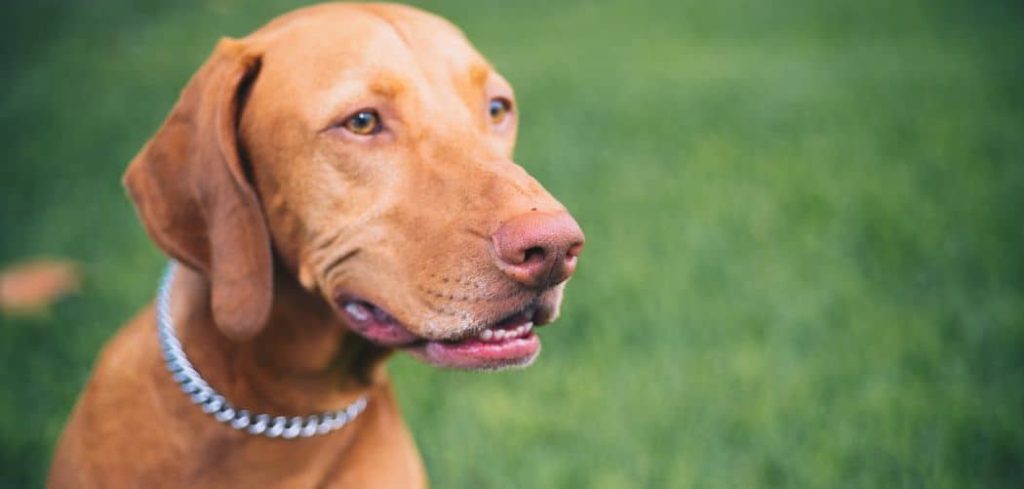Noticing your dog panting and farting frequently can be concerning and may indicate an underlying digestive or health issue.
While occasional flatulence is normal, persistent farting combined with heavy panting could signal serious medical conditions that require attention.
We outline the common causes of dog panting and farting, what you can do at home, and when to seek veterinary help.
Dog Panting and Farting — Why It Happens
A dog panting and farting often occur together when a dog’s digestive system is upset or when they are physically or emotionally stressed. Panting is a way for dogs to regulate body temperature or respond to discomfort, while farting results from gas buildup in the intestines.
Various causes, from diet and swallowing air to gastrointestinal disease, can lead to these symptoms, so it’s important for owners to pay attention to patterns and severity.

Dog Panting and Farting: Common Causes
Diet-Related Issues
Diet is one of the most common contributors to excessive gas and panting. Foods that are hard to digest, high in fiber, or rich in certain proteins can cause intestinal fermentation, leading to gas buildup.
Dogs may also swallow air while eating quickly, which contributes to flatulence. You might notice bloating, rumbling stomachs, or discomfort.
While often manageable with diet adjustments, persistent gas and panting may indicate more significant digestive problems.
Read more: Dog Panting and Foaming at Mouth (Why it could signal illness)
Food Intolerances and Allergies
Food intolerances or allergies can provoke gastrointestinal upset and panting in dogs. Proteins, dairy, wheat, or certain additives can trigger gas production and abdominal discomfort.
Dogs may scratch, lick excessively, vomit, or show loose stools in addition to farting. Identifying and eliminating the offending ingredient is key to reducing symptoms and improving overall digestive health.
Gastrointestinal Infections
Bacterial or viral infections in the gut can lead to excessive gas, bloating, and panting as the dog experiences discomfort.
Dogs may also have diarrhea, vomiting, or a reduced appetite. Prompt veterinary evaluation is important, as infections can lead to dehydration or worsen if untreated.
Medications, diet adjustments, and supportive care usually resolve these issues efficiently.
Stress and Anxiety
Panting and farting can also be related to emotional stress. Anxiety triggers rapid breathing, which can cause the dog to swallow air, contributing to gas in the intestines.
Situations like thunderstorms, separation anxiety, or a new environment may lead to increased panting and flatulence.
Behavioral strategies, environmental enrichment, and calming techniques can help alleviate symptoms.
Medical Conditions
Certain medical conditions can manifest with both panting and excessive farting. These include inflammatory bowel disease, pancreatitis, liver problems, or intestinal blockages.
Dogs may appear lethargic, uncomfortable, have a distended abdomen, or show changes in appetite and stool.
These conditions require prompt veterinary diagnosis and intervention to prevent severe complications.
Swallowing Air (Aerophagia)
Some dogs swallow air habitually, especially if they eat too quickly, play vigorously, or chew excessively.
The trapped air contributes to intestinal gas and may result in panting as the dog attempts to relieve discomfort.
Training dogs to eat slowly, using special feeders, or managing playtime intensity can reduce air intake and gas production.
What to Do If Your Dog Is Panting and Farting
Ensure your dog’s diet is appropriate and avoid feeding foods known to cause gas, such as beans, cabbage, or high-fat scraps. Gradually introduce dietary changes to prevent sudden digestive upset.
Encourage slow feeding by using puzzle feeders or slow-feed bowls to reduce air swallowing and overeating.
Monitor your dog’s overall behavior, noting any changes in appetite, stool consistency, or activity level. This helps determine if the panting and gas are stress-related or potentially more serious.
Keep your dog calm and relaxed in situations that may trigger stress-induced panting. Use gentle reassurance, structured routines, or safe spaces to minimize anxiety.
Provide regular exercise to aid digestion, but avoid overly vigorous activity immediately after meals, which may worsen bloating or gas.
When to Call or Visit Your Vet
Seek veterinary attention if panting and farting are persistent, severe, or accompanied by vomiting, diarrhea, lethargy, bloating, or abdominal pain.
Emergency care is warranted if your dog shows signs of a distended abdomen, collapse, labored breathing, or extreme discomfort.
Sudden changes in stool, appetite, or behavior alongside gas and panting should prompt a vet visit to rule out gastrointestinal infections or systemic illnesses.
Even mild but recurring episodes may require professional guidance to identify food intolerances, allergies, or underlying medical conditions.
Read more: Dog Panting and Hard Stomach (Understanding the connection)
Key Takeaway
Panting and farting in dogs may be caused by diet, stress, digestive issues, or underlying medical conditions. While occasional gas is normal, persistent flatulence combined with panting warrants careful observation.
You can improve your dog’s comfort by managing their diet, feeding practices, exercise, and stress levels. Timely veterinary evaluation ensures serious conditions are identified early and treated appropriately.
By understanding the common causes and monitoring your dog’s symptoms, you can take proactive steps to support digestive health and overall well-being, keeping your dog happy, comfortable, and healthy.
